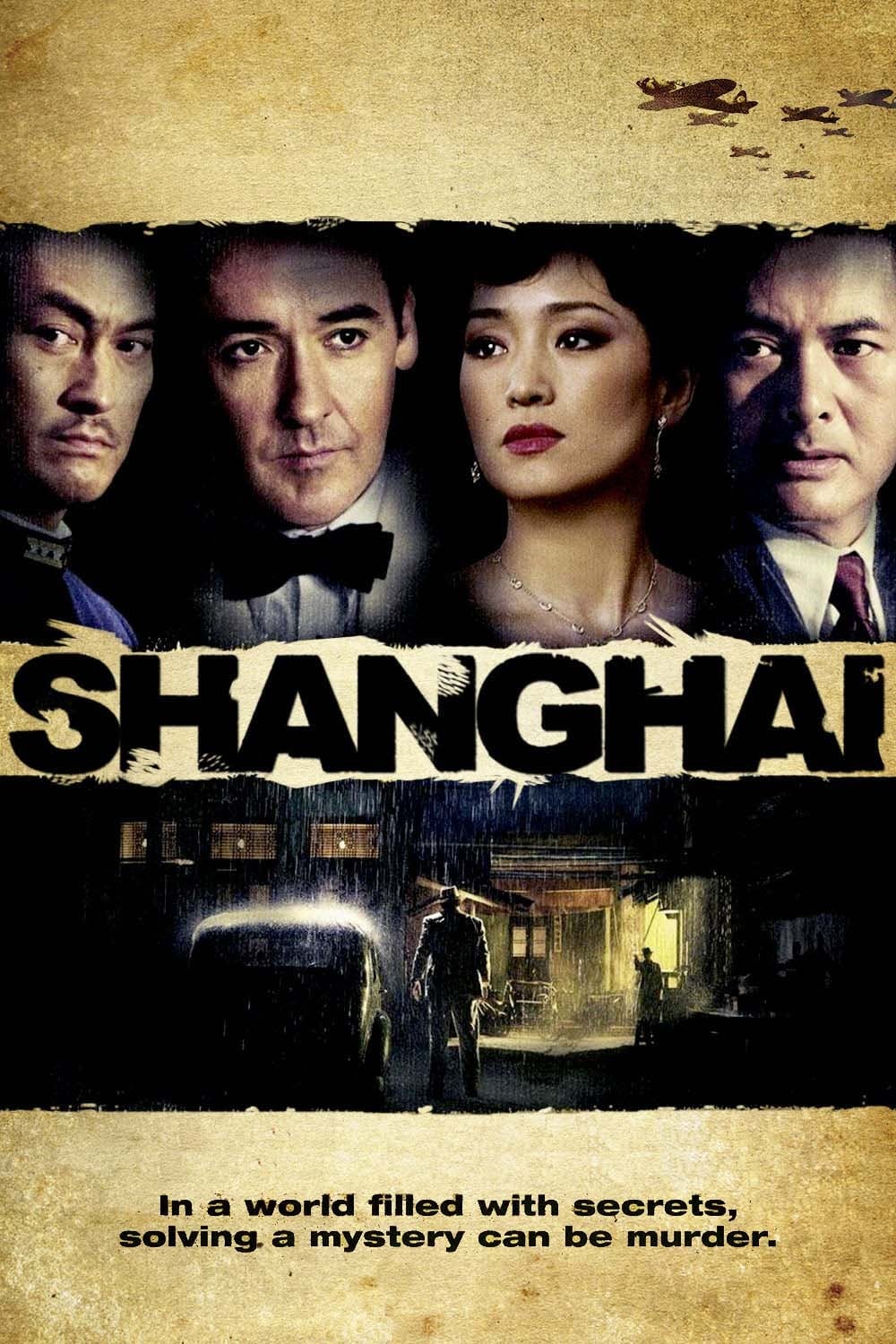
An American man returns to a corrupt, Japanese-occupied Shanghai four months before Pearl Harbor and discovers his friend has been killed. While he unravels the mysteries of the death, he falls in love and discovers a much larger secret that his own government is hiding.
04 Feb Shanghai (2010)
No Lust, Too Cautionary
I’ve written before about the tendency in film to couple a love story with some radical political turmoil. The reason is simply that love is not inherently cinematic. Sex is and female attractiveness can be, but I‘m talking here about the dimensions of love and in particular that dangerous love that swallows all else, bringing certain ruin.
We have many examples of this, including Ang Lee‘s amazing ‘Lust, Caution.‘ I mention that film because it worked; it drew me in, made me re-experience my own love and terrified me. This is one thing a film can do, entangle experiences. When one is in control of a master storyteller, but out of control of the viewer, and the personal engagements of the viewer are also out of control, you get a mix of reliving a part of your life knowing someone is in control.
I also mention is because it is much the same story as in this film, involving the same events. But Lust works. This doesn‘t. Part of the problem is the director of course. We know the story works; it is based on a well understood cinematic dynamic. we’ve seen these actors be effective before. In this comment, I would like to focus on one error. It isn’t the only one; the main problem is that the director is meek. The thing of interest to me is the attempt to build on noir.
Noir is simple: a random guy is manipulated by forces beyond his control, and those forces, by a few conventions, are merged with our identities as viewers. It has some indicators. It starts with the hero in a very bad spot, then establishes itself as a narrated story, with the hero as narrator. There are a few cinematic ticks as well and we get these early enough to get the message.
The basic problem, I think, is that these two cinematic traditions do not naturally mix. They grew over 60 – 70 years, each of them. Each has shortcuts to an implied contract between viewer and filmmaker.
What Lust did was place the viewer in the story. We suffer as the characters do, carrying angst against the unknown. What noir does is place the viewer outside the story as manipulator of fate, together with the filmmaker. Both can disturb, engage, reward but the machinery is different.
Posted in 2016
Ted’s Evaluation — 2 of 3: Has some interesting elements.


No Comments